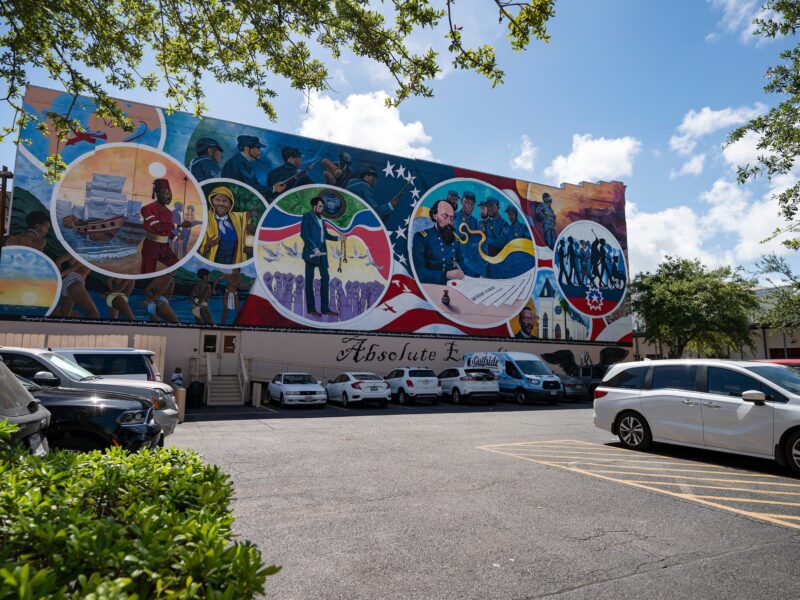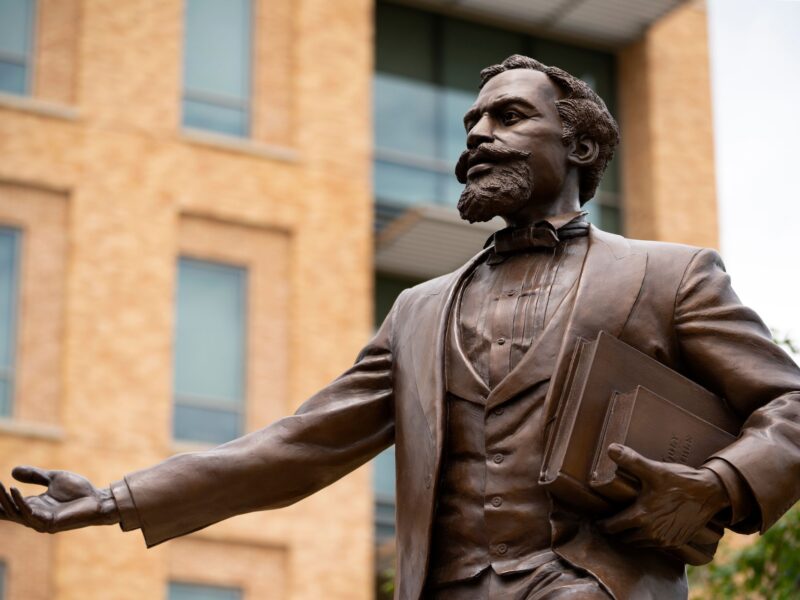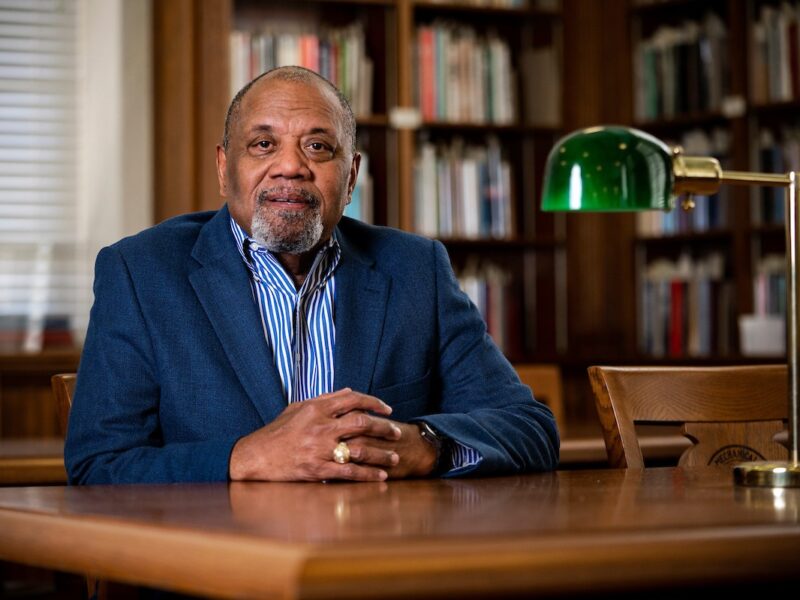Reflecting On Juneteenth, The Day Enslaved Texans Learned Of Their Freedom
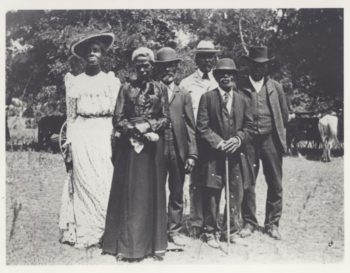
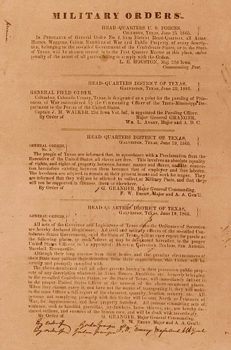
After President Abraham Lincoln issued the Emancipation Proclamation freeing enslaved Africans on Jan. 1, 1863, life seemed to go on as normal in Texas. By the time it took the news to make its way to the westernmost state of the Confederacy, 2 1/2 years had passed.
Rebecca Hankins, a Texas A&M University professor and Africana Studies specialist at Cushing Library, said many slave owners fled to Texas when they saw the Union was winning the Civil War, seeing it as a sanctuary and place where they could maintain their social status. It was not until Union Army Gen. Gordon Granger arrived at Galveston Island with 2,000 federal troops to occupy Texas that these slaves learned they had been freed years earlier.
Beyond geographic factors, the Emancipation Proclamation had not been enforced in Texas because there was a lack of Union soldiers in the state to enforce the order, Hankins said. Thousands of slaves finally learned of their freedom on June 19, 1865 when Granger read General Order No. 3 declaring that “all slaves are free.”
Scores of white slave owners abandoned their land to Union soldiers, Hankins said. Many of the newly-freed dragged their cabins away from their former slave quarters and into fields in celebration. The women no longer were reduced to field labor, she said, allowing them to devote time to childcare and their own homes.
One-hundred and fifty-five years later, Juneteenth is observed as a day of shared prayer, food and celebration. And while it is still celebrated today, largely by African Americans, it’s often viewed as a Texas-centered event and not taught in history textbooks across the United States.
Hankins said this was largely due to the United Daughters of the Confederacy, which was founded in 1894 to commemorate the Confederacy by erecting monuments and memorials. The group was successful in working with legislatures and school committees to change the narrative of the Confederacy to focus on states’ rights, the “Lost Cause” ideology and heroism, she said.
“They pushed to erect statues of Confederate symbols and generals all throughout the country, and pushed to change textbook portrayal of enslaved Africans as happy and docile in plantation life, but savage and immoral as freed people,” Hankins said.
Juneteenth was made a state holiday in Texas by a bill authored by African American State Rep. Al Edwards in 1979. Many other states also now recognize Juneteenth – Virginia Gov. Ralph Northam announced earlier this week that he was making it holiday in the state that once was home to the capital of the Confederacy – but is not a national holiday.
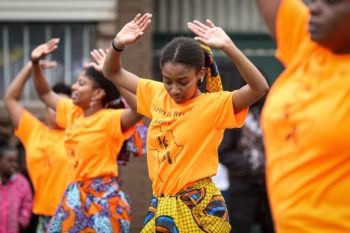
In the corporate world, a growing number of companies including Twitter, Uber and Nike recently announced they will observe June 19 as a company holiday amid the recent nationwide demonstrations for racial equality.
Of the current protests surrounding racial justice following the death of George Floyd, Hankins said what most sets apart this movement from those of previous decades is the large participation by non-black Americans.
“I think that’s a really significant development that I think will maintain the momentum, and I am really proud to see that there are people educating themselves and understanding that racial injustice is a terrible thing and we need to make changes,” she said.
And while there’s growing recognition of the historic moment, Hankins said, it’s important to push for structural changes rather than leaning on platitudes when observing Juneteenth.
“Where are the reparations for the descendants of those Africans who endured slavery and received nothing in return? These are the issues that we should be reflecting on this holiday,” Hankins said. “How can we make amends and right all of the wrongs inflicted on African American citizens?”
Media contact: Caitlin Clark, caitlinclark@tamu.edu
